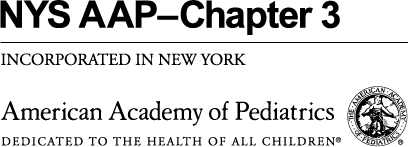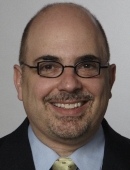Dr. Kleinman is a general pediatrician and Vice Chair of the Department of Health Evidence and Policy at the Icahn School of Medicine at Mount Sinai. Though he “didn’t particularly like doctors” growing up, a strong family history of social service led him to a career in medicine, pushing the field of child health quality forward with new measurement tools and methods, extensive legislative work, and numerous research publications.
How did you become involved in child health quality?
It was clear that managed care was going to happen in some way or another, and that there was going to be a battle between cost and quality, in the name of efficiency or value. I thought that the new advocacy was going to be quality. So I decided the new expertise that I was going to develop was going to be how to measure healthcare–quality of healthcare, outcomes in healthcare, doing measurement around healthcare. And I later expanded; I really became involved in quality and quality improvement, but I never lost that focus of measurement as a tool for advocacy.
What does “advocacy” mean to you?
I published a column in JAMA about the physician’s role as an advocate, and what it said is that advocacy can be with a capital A or a small a. You can advocate for a colleague and for justice. You can choose research topics that you think will move the world in the right direction. You can try to make change in your organizations, to make them more humane. You can volunteer to be on the board of local organizations. There are many different ways to perform advocacy in the mundane course of a career in medicine. So I try to think about what things will do, not only in terms of my own career, but in terms of what it might do for others.
You had several strong mentors on your career and advocacy paths. Do you consider yourself a mentor?
I’m very busy here… and yet I take it as a high obligation when junior people come to me and say I need some methodological advice, or I need a mentor, or I need someone to serve on a committee. That’s time you have to create somewhere. Mentorship is sometimes with a capital M, where you are taking leadership and really putting someone under your wing, but mentorship is also momentary leadership, and being available in specific areas.
What are some of the lessons you have learned along the way?
Twenty some years ago, I had a seat at the table in child health quality. I lost that seat because I could see that we weren’t doing a very good job with quality, and yet we were claiming to do a good job, and I pointed that out to everyone at the table. That’s not how you make change; that’s not how you’re an effective advocate, by pointing out to people either that they were too stupid to see, or that they didn’t care enough to notice… Another lesson; part of advocacy is going into places, even when they’re sometimes dangerous. Sometimes that can hurt. There are double-edged swords, but you have to figure out how to walk into dangerous territory with your values, and your beliefs, and your data intact.
What do you think is one of the biggest challenges of working in child health quality?
There is uncertainty; there is meaningful uncertainty. Even well-meaning, well-informed people can disagree about what to do, but you still have to measure the quality. Otherwise, pediatrics will go unmeasured, because relative to adult medicine, pediatrics will always be understudied. So if we are going to advocate for children, we have to be willing to make mistakes. We have to be willing to move forward in the face of uncertainty and check our work. We have to be explicit and careful, but we have to move–we can’t sit still. And we can’t just get better and better measures about the few areas that are studied. That’s not how change happens, that’s not how the lives of children are improved, that’s not how the quality of care is improved.


